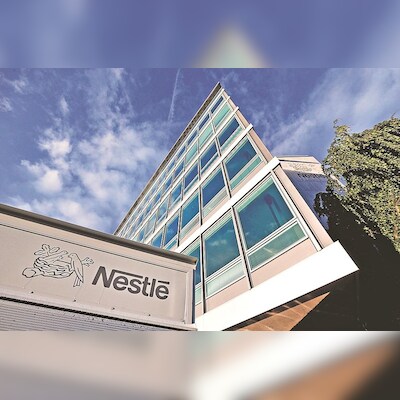Indian subsidiary of Nestle, a leading manufacturer of packaged foods, has stated that it is using innovation as a development engine in the nation because India is the world’s fastest-growing market for its products.
In the company’s annual report for FY24, which covered 15 months, Suresh Narayanan, chairman and managing director (CMD), Nestle India, stated, “Our total sales witnessed a double-digit growth as we navigated a dynamic market landscape.”
The analysis identified disciplined resource allocation along with penetration, premiumization, and innovation as the primary drivers of corporate growth.
Innovative products accounted for a sizable percentage of revenues in 2023. This includes plant-based protein choices, millet-based goods, and science-led nutrition solutions that meet a range of dietary requirements, the statement stated.
“The company’s main strength is innovation. We have launched more than 140 new items in the last eight years to revitalise, refocus, and calibrate our portfolio,” the statement continued.
Thanks to items like Lactogrow, Nescafe black roast, biryani mixes, and Munch cereal, the percentage of sales of innovative products increased from 3% in 2018 to over 6% in 2023.
One of the companies with the fastest growth rates in FY24 was Nestle India, whose out-of-home business expanded quickly.
Under the sector, the firm co-created a menu employing two of its flagship brands, Kitkat and Nescafe, in partnership with QSR (Quick Service Restaurant) chains, including McDonald’s India (West and South), Krispy Kreme, and movie theatre operator PVR-INOX.
The leading player in packaged foods also collaborated with Social and Boss Burger restaurant chains to test-launch their plant-based product line.
Despite the company’s strong growth in every category, India grew to be the second-biggest Kitkat market and the largest Maggi market worldwide in FY24.
A balanced product mix, competitive pricing, and volume growth in Maggi noodles and Maggi Masala-ae-Magic all contributed to Maggi’s growth. Additionally, the business focused on updating the Maggi tomato ketchup formula to include 22% less sugar. In FY24, the firm introduced Korean-flavored Maggi noodles, capitalising on the Hallyu phenomenon.
Rajat Jain, Head of Foods at the firm, stated, “Our consistent efforts to strengthen brand trust and accelerate the pace of innovation have garnered immense consumer love and made India the largest Nestlé market worldwide for Maggi.”
From the study: Nestlé’s opportunities
Demand induced by demographics
Serving the largest Gen Z population in India, who are recognised for their brand awareness and digital fluency, requires innovation.
growing demand in remote areas
With improvements in access, infrastructure, and spending power, the rural population offers a sizable market base.
Premiumization propelling expansion
The top 100 cities have a noticeably stronger tendency in this direction due to higher discretionary income.
Collaboration between humans and AI
AI is being utilised in distribution and pricing, product creation, consumer interaction, and personalised shopping

